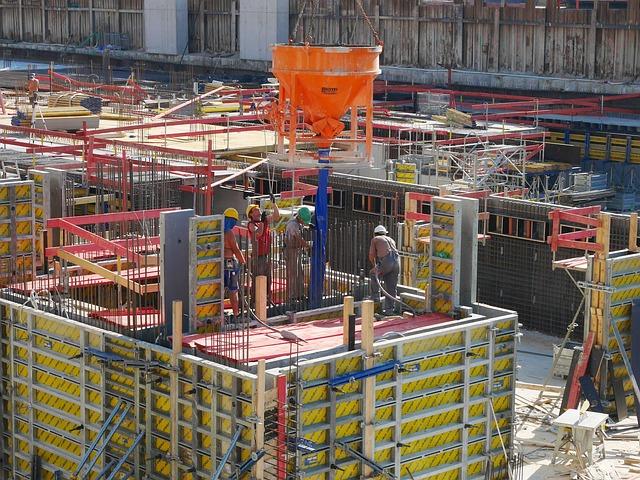Ensure Successful Execution In Construction Projects With These Smart Steps
In the world of business and development, construction holds a distinct significance as it shapes landscapes, creates infrastructures, and builds the backbone of civilizations. The sector is an intricate mesh of planning, designing, and executing, with each step etching the blueprint of success. A single misstep, however, can lead to monumental setbacks. Hence, the management of construction projects demands precision, expertise, and an unwavering eye for detail. As we delve into these smart steps, let's unlock the strategies that ensure successful execution in construction projects, paving the path for structures that stand tall, strong, and true to their purpose.
1. Build a Strong Project Team
A strong, dynamic project team forms the bedrock of any successful construction project. This team should be composed of individuals possessing diverse yet complementary skills, fostering a holistic approach to problem-solving and decision-making. Effective communication and mutual respect among team members are also pivotal to success, fostering an environment of collaboration and transparency.
Furthermore, it is vital to establish clearly defined roles and responsibilities to ensure accountability and streamline processes. Consider hiring a professional who deals with corporate construction projects to provide guidance and expertise to the team. Training and development opportunities for the team can also prove beneficial, fortifying their skills while keeping them updated on industry trends and best practices.
2. Establish a Clear Project Plan
A comprehensive project plan acts as a roadmap, guiding the team through each phase of construction. This plan should outline all essential components – from project goals and milestones to budget and resource allocation to potential risk mitigation strategies. It functions as a roadmap, providing direction to the project team and helping them stay focused and aligned.
Moreover, the project plan should be flexible enough to account for any unforeseen circumstances, enabling the team to adapt and adjust as necessary. Regular review and updating of the plan are crucial to track progress and make timely changes if required. In essence, a well-crafted project plan sets the stage for strategic and efficient execution of construction projects.
When it comes to implementing your construction plan, consider partnering with Australia's best excavator hire for optimal project efficiency. These top-tier excavator hire services offer state-of-the-art equipment, skilled operators, and a commitment to delivering exceptional results, ensuring that your construction project is executed with precision and effectiveness from start to finish.
3. Employ Effective Project Management Techniques
Implementing effective project management techniques is critical to the seamless execution of construction projects. These techniques can range from utilizing modern software tools for tracking progress and managing resources to employing methodologies like Agile or Lean for enhanced efficiency and productivity. Effective project management also involves:
- Constantly monitoring project status.
- Identifying potential bottlenecks.
- Making necessary adjustments to keep the project on track.
It's equally important to foster an open line of communication with stakeholders, keeping them informed about project developments and considering their feedback. Risk management also plays a crucial role, with strategies in place to identify, assess, and address any potential risks that could derail the project. In summary, effective project management techniques are indispensable in navigating the complexities of construction projects, ensuring they are completed on time, within budget, and to the highest quality standards.
4. Utilize Technology and Automation
Building Information Modeling (BIM) is a cutting-edge technology solution that provides architecture, engineering, and construction professionals with a 3D model-based process. This empowers them with valuable insights and efficient tools for planning, designing, constructing, and managing buildings and infrastructure. Additionally, automation, utilizing drones and robotics, enhances site safety, boosts productivity, and reduces manual labor.
Digital tools also aid in communication and collaboration, providing shared platforms for project teams to discuss, monitor, and alter project plans instantaneously. Technologies for data collection and analysis help in making informed decisions and predicting potential risks. Together, these advancements revolutionize the industry, delivering optimal efficiency and improved outcomes.
5. Implement Risk Management Strategies
Despite meticulous planning and execution, unforeseen events can occur in construction projects. Hence, it is critical to have risk management strategies in place. These may include identifying potential risks and developing contingency plans, maintaining a reserve budget for unexpected expenses, and establishing clear communication channels with stakeholders to keep them informed of any changes or delays.
Regular safety inspections and strict adherence to safety protocols minimize accident and injury risks. A well-defined crisis management plan is crucial, outlining procedures for handling emergencies and unexpected disruptions. Proactive implementation of risk management strategies ensures construction projects stay on track and achieve success.
6. Foster Sustainable Practices
In today's world, sustainability is not just an option but a necessity. Hence, incorporating sustainable practices into construction projects becomes imperative. This can involve the use of renewable and recycled materials, efficient waste management, and energy-efficient construction methods.
Additionally, seeking green certification, such as LEED or BREEAM, can add value to the project and appeal to environmentally conscious stakeholders. Sustainable construction practices not only contribute to environmental preservation, but they also result in cost savings in the long run, create healthier living/working spaces, and enhance the reputation of the construction firm.
Let these smart steps serve as your guide to ensure the successful execution of construction projects. With each completed project, they continue to build a stronger foundation for future generations. The construction sector is ever-evolving, and staying updated on the latest trends and advancements is crucial for success. Continuous learning and innovation are vital to thriving in this dynamic industry.

